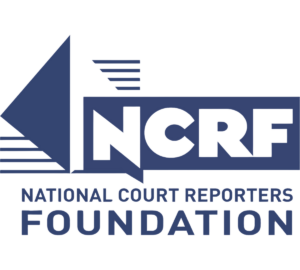“It took a lot of hard work and determination to get through school and to build my skills as a practicing reporter. I’m a reporter business owner, so my approach in working with clients, reporters, and staff is generally directed by the reporter in me,” says Jan Schmitt, RPR, owner of the Schmitt Reporting & Video in Vancouver, Wash.
To mark Women’s Entrepreneur Day, an international day celebrated with a worldwide social media campaign on Nov. 30, the JCR reached out to several of NCRA’s firm owner-reporters — both male and female — to get their take on what entrepreneurship means to them.
While the people identified themselves foremost as reporters, they had many traits that transfer over to being an entrepreneur. “When I tell people what I do, I always explain the reporting part. Telling them I am business owner comes later in the conversation when I explain that I don’t work in a courthouse but for myself,” says Cassy Kerr, RPR, CRR, CRC, a freelancer and the owner of Russell Court Reporting, Inc., in Tulsa, Okla. “And I never even thought of myself as an entrepreneur until about a year ago when a friend introduced me as one.”
But reporters shouldn’t fear the term entrepreneur. Small businesses contribute to the global economy and make up about half of all U.S. jobs.
Attributes of the entrepreneurial court reporter
Only nine months into her career, Katherine Schilling, RPR, a freelancer in Richmond, Va., explains entrepreneurship this way: “In my mind, an entrepreneur is someone who offers a one-of-a-kind service that furthers their industry as a whole. This, too, is something that I feel comes with time and experience. These are the real-timers, the multiple hook up-ers, the three-scopist team-ers, the daily copy turn around-ers! At present, I’m focusing purely on advancing my own skills, but once I’m at a point where I’m offering something revolutionary to the court reporting industry, maybe then I can start considering such a prestigious title as entrepreneur.”
Entrepreneurship matches many of the attributes that reporters already have — at least according to the Small Business Administration, which lists persuasiveness, risk-taking, independence, creativity, and being supported by others as important traits for entrepreneurs.
“You are very much a salesperson as a reporter, and that is the start of being an entrepreneur,” says Donna Linton, RMR, a freelancer based in Ashburn, Va. “You start at the beginning of the day selling yourself by being on time and prepared for the case, having your exhibit stickers and equipment ready to go. What is hard for a lot of reporters is to know you have the skill at the end of the day to sell your product by asking, ‘Do you need a rough draft’ or ‘Would you like to expedite this?’”
But there are many more traits that reporters and firm owners list as important in addition to those mentioned — with organization and planning topping most people’s lists. “The most important in my view are focus, persistence, determination and patience, planning, and dealing with many types of individuals, as well as being accountable,” says Grant Morrison, CRI, a freelance reporter in San Antonio, Texas.
“I’m big on planning ahead, especially for trials,” says Linton. ”Working with other reporters to get as much information ahead of time from clients helps us be consistent and produce the best product we can under pressure.”
“I believe the most important attributes of being an entrepreneur in the field of court reporting start with integrity and a commitment to the legal process,” says Kathy Reumann, RDR, a freelancer based in Rock Island, Ill.
“Punctuality is extremely important. It shows respect and readiness to tackle the job at hand,” says Lisa B. Johnston, RMR, CRR, CRC, a CART captioner based in Melbourne, Fla. “Being able to keep calm in a situation that may not be going as planned and focusing on how to solve the problem and move on.”
“Entrepreneurs are the trailblazers of any industry, so they need all the following attributes to make their business a success: self-motivation, discipline, time management, and a passion to keep learning and improving,” said Schilling. “Court reporters have these traits in spades. Due to the nature of the court reporting field, we are often the only ones driving ourselves to do our best, through school and even decades into the working world. The job is also a very solitary one, especially for freelancers, so we have only ourselves to rely on in order to stay focused on the job and stay organized when those high page counts and expedites start rolling in.”
“A reporter skill that translates to an entrepreneurial skill is perseverance,” says Kerr. “No matter how difficult a deposition may be with the terminology or people speaking at once, I don’t give up, and I follow that same thinking with running a business.”
Advice for entrepreneurs
Many stressed the importance of being a reporter first. “You have to know how things are going out there in the field working an actual job so you can understand what the reporters are dealing with and what the clients are really expecting from their reporters as well as the judges,” says Linton.
Finding good support is essential to supporting the entrepreneur, whether it’s additional reporters to build your business or hiring a scopist or proofreader to keep up on your deadlines. Linton notes that these investments are about knowing that time is money — and saving time is key.
“The ability to attract and keep good reporters and staff is key. Endless determination, good vision and leadership — ‘Where there is no vision, the people perish’ (Proverbs 29:18) — knowing your strengths and, more important, knowing your weakness and being willing to seek help in those areas. Some creativity and an ability to sell go a long way,” says Schmitt.
Linton advises finding a reliable and fantastic scopist and proofreader: “Do not be afraid to use one and find a favorite or two.”
“Know your CAT software to save you time so you can take more work to make more money,” Linton also suggest. ”For an agency, it means knowing skilled reporters who are reliable and keeping them happy. It saves the agency time finding coverage and means fewer headaches when producing their work for your clients.”
“Having the right people working for me,” says Kerr. “Those include everyone from my scopist and proofreader to my CPA. Delegating responsibilities to the people I can count on to get the job done and done correctly so I can focus on reporting and other aspects of running a business is so essential. I tried doing everything by myself, and it made life very difficult.
Organization is also important, mentioned by almost everyone. “Being organized in your scheduling is important,” says Johnston. “Personally, I have three calendars with all of my work appointments and jobs: one paper calendar, one smartphone calendar, one whiteboard calendar in my office. Reporter work days are anything but routine, so if you’ve committed to something, keep the commitment. Your reputation is of utmost importance.”
“Other important attributes are being wise with your finances and having confidence in your ultimate success,” says Kerr.
“Higher education and certification in your field shows dedication to your career,” says Johnston. [Ed. Note: NCRA offers education specific to firm owners at is Firm Owners Executive Conference, being held at Loews Ventana Canyon Resort, Tucson, Ariz., Feb. 12-14, 2017.]
“Luckily for court reporters, there are always plenty of industry conventions to attend in order to expand our knowledge and improve our skills for the job,” says Schilling. “By continuing our education, we improve our product and can deliver top-notch work that will wow our clients and push the court reporting profession to new heights!”























